How Can Schools Grow from Coronavirus?
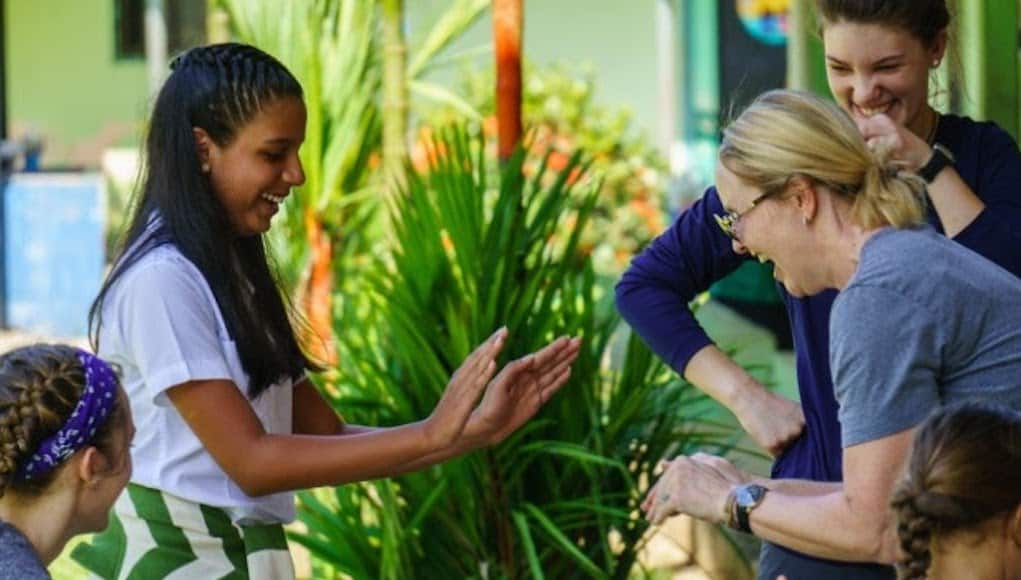
By: Ross Wehner and Dr. Kirk Wheeler
Coronavirus has closed schools around the globe. Now it’s sparking what could be the largest-ever experiment in teacher training.
As a history teacher at Collegiate School in Richmond, VA., Brad Cooke was known for taking students off campus to explore his city’s history of enslaved people and engage in collaborative projects. Now he finds himself using Zoom, Google Classroom, and other tech tools to teach history in an utterly new way. “It’s exhausting,” he says. “But I’m growing.”
The overnight shift to online learning is causing struggle but also sparking growth and new ideas. Every educator experiencing this shift is on the sharp edge of human learning.
This will be a long journey with many unforeseen challenges, frustrations, and lost learning opportunities for students. But new skills and clear themes are emerging that will shape schools for years to come.
“This is an opportunity for schools to question everything about the traditional model,” says Mark Crotty, Executive Director of the Northwest Association of Independent Schools (NWAIS). “The speed at which schools are meeting this shift destroys any argument for why schools can’t change.”
Here are some emerging growth areas for schools, starting with the two most obvious first:
Turning Point for Online Learning. At St. Thomas School in Medina, WA, many of the tech tools being launched will become a set of core competencies required of all faculty moving forward. Online and remote learning used to be a domain of the few tech-forward teachers but will now become part of a more diverse toolkit that every teacher needs to have.
Other school leaders agree. “We will emerge with more streamlined digital learning, focused on the essentials,” said Daniel McGee, the Director of Technology & Library Services at Laurel School in Shaker Heights, OH. “This is an unplanned turning point for edtech.”
Spotlight on Leadership. School leaders have always had to be effective managers of people, schedules, dollars, curriculum, and facilities. Beyond IQ, this pandemic has forced administrators to muster new levels of EQ, or what psychologist Daniel Goleman calls “emotional intelligence.” Leaders who can be vulnerable, empathetic and self-aware have helped their school communities adapt better to traumatic change. On the global stage, COVID-19 is a leadership crucible that is elevating human-centered, often female, leaders as never before, including Jacinda Ardern of New Zealand. Tsai Ing-wen of Taiwan, and Mette Frederiksen of Denmark. The same is happening in schools, where parents and school boards will call for human-centered leaders as never before.
Enhanced Crisis Response. Coronavirus has forced schools to go beyond drills to real-life crisis response. Like many schools, St. Thomas School now has full-blown plans for remote learning and laptop distribution, student expectations, communication structures, procedures to manage all business operations, and steps to fully close the campus in times of emergency or natural disaster.
Greater Flexibility. What has become obvious to many teachers this week is that synchronous classes that are the same duration as normal in-person classes will not work. “We’ve cut our classes basically in half and created one-on-one check-ins between the teacher and the student,” says Brad Cooke, a history teacher at Collegiate School in Richmond, VA. “I am hoping this will allow each student to create meaningful content, do great thinking, and go on their own journey.”
Better Pedagogy. The shift to online learning is exposing poor pedagogy like never before. “Sit-and-get” learning never worked well in traditional classrooms, but simply does not work for online learning. “There is undoubtedly a silver lining when it comes to improved pedagogy,” said Peter Brown, Global Programs and Studies Coordinator at Menlo School in Atherton, CA. “With online learning, there are very few teachers who are using their time to lecture and then offer a multiple choice quiz. Teachers are adopting new practices around engagement and personalization.”
Deeper Trust and Gratitude. Schools that have a history of courageous conversations with parents around risk management are reaping the benefits now with calmer, and more measured, community interactions. But coronavirus is forcing all school communities to have these conversations, which ultimately builds deeper trust.
Hundreds of tweets this week show how parents, who are now homeschooling their kids for the first time, are appreciating teachers like never before. “A lot of parents are finding out just how hard teaching is,” says Crotty. “There will be a whole lot more appreciation, understanding, and valuing of what teachers do.”
Focus on Equity. Socioeconomic differences between students, which can be hard to see at school, have been revealed plainly by COVID-19. Families with multiple digital devices, strong internet, and parents who can work from home have a huge advantage in the pandemic. Students on the wrong side of the “Digital Divide” have prompted many schools to use paper-based materials, or stick to a purely asynchronous approach to remote learning. The idea of the internet as a human right, long advocated by the United Nations, is now a practical concern for many K-12 schools, especially in rural areas.
Increased Global Connections. Teachers at Norfolk Academy in Norfolk, Virginia, are experimenting with creative on-campus experiences that will allow students to learn in the event they are unable to travel overseas. The school is examining how to simulate global experiences through education technology, local experts, and project-based learning. “These innovations will allow place-based learning in the future to be better integrated into the classroom,” says Price Hall, Director of Norfolk Academy’s International Programs.
Coronavirus has created endless online opportunities to explore world events through math, science and other areas of core learning. “I’ve been encouraging students to live in this and write about it,” says Dr. Alisha Stanton, Adjunct Faculty and Program Manager at the University of Denver’s Office of International Education. “This is a piece of history and, when it’s done, you’ll have more knowledge to contribute to the world.”
Sharper Learning Objectives. At George Walton Academy in Monroe, GA, a COVID-19 response team found themselves questioning legacy approaches to learning. “We’ve had more meaningful conversations about backwards planning over the last two weeks than we have ever had,” said Femke Côté, Associate Head of School at George Walton Academy.
Cooke says the crisis is helping Collegiate School recognize what’s important beyond the pressure of AP exams and sports. “This is helping us focus on what is important: critical thinking skills, creativity, flexibility, and being able to embrace failure.”
Focus on Social and Emotional Learning. The crisis also confirms that the best learning happens through trust and a social and emotional foundation. “I hear people saying continue with the rigor, but my gut tells me take care of the social and emotional needs of my children,” says Nathan Lutz, Global Learning Coordinator and French Teacher at Kent Place School in Summit, NJ.
Schools are already preparing for coronavirus’ emotional blowback. “Everything going on now has long-term implications. When they get back into school, we don’t know where their heads will be. Some kids will be traumatized,” says Crotty. “We are asking school counselors to act now.”
The Responsive School. Perhaps most importantly, schools will become more responsive in an increasingly accelerated, interconnected, and ultimately, unknowable future. In Microsoft’s Changing World of Work series, a video entitled The Responsive Organization features digital futurist Aaron Dignan whose words apply to any business or school right now.
“One of the big dynamic shifts between the old 20th-century model and the new 21st-century model is this idea of predictability vs. uncertainty,” says Dignan. “In the old model things didn’t change very fast, it was predictable, so you built for predictability.” Big moves were transformative.
In an era of uncertainty, problems are more complex and evolving. Coronavirus is underlining the importance of skilled communication, strong leadership, transparency, and vulnerability. “How do you behave and operate in that uncertainty?” asks Dignan. “Smaller moves, more frequent. More communication, more letting people know where you stand.”
One huge challenge of coronavirus, which schools will probably not be able to fully solve, is how to recreate the human touch. “This is a school built on relationships,” says Cooke. “How do we continue our sense of community when we’re staring at each other through computer screens?”
When coronavirus passes, the big question is whether these positive shifts will stick. “Will schools ride this out and go back to normal, or will they take the lessons from this and make change?” asks Crotty. “This will depend on each school.”
For more, see:
- Hard Reset: What Will Be New Post Pandemic
- Getting Through: Leading Through And To A New Generation Of Learning Systems
- Coronavirus Offers Teachable Moments and Wakeup Call for All Schools
Stay in-the-know with innovations in learning by signing up for the weekly Smart Update.
Getting Smart has launched the Getting Through series to support educators, leaders, and families on the path forward during such an uncertain time. This series will provide resources and inspiration as we face long term school closures, new learning environments, and address equity and access from a new lens. Whether you are just getting started with distance or online learning, or you’ve had plans in place and have the opportunity to share your work and guidance with others, there is a place for your voice and an opportunity to learn.
We’re going to get through this together, and we invite you to join us. Please email [email protected] with any questions or content you’d like considered for publication. We also invite you to join the conversation and on social media using #GettingThrough.
Ross Wehner is Founder of World Leadership School in Boulder, Colorado, which partners with K12 schools to transform learning and create next-generation leaders. Dr. Kirk Wheeler is an edupreneur and Head of School at St. Thomas School in Medina, WA. Follow them at @rosswehner and @drkirkwheeler.


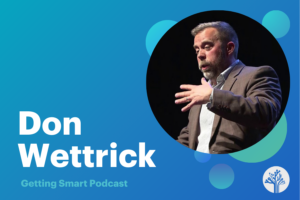

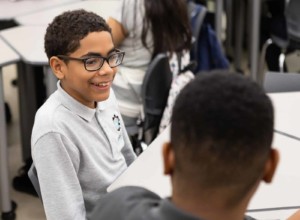
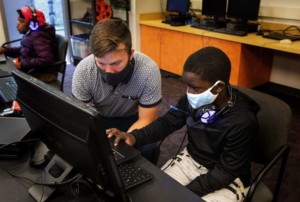
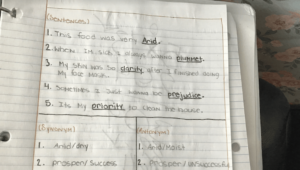
0 Comments
Leave a Comment
Your email address will not be published. All fields are required.